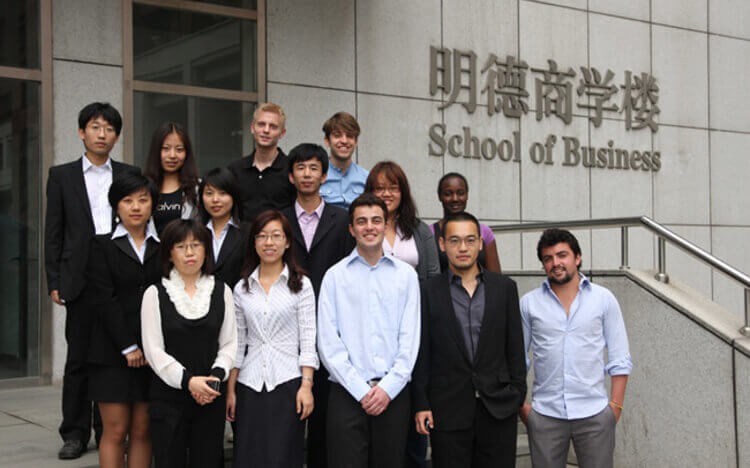In fact, nearly half of business schools in the Asia-Pacific, where China is a huge player, received more international applications in 2018 than the previous year, according to the Graduate Management Admission Council.
But what does it take for international applicants to stand out, and gain a place on a Chinese MBA program?
“Having a long-term career interest in China makes an ideal candidate,” says Majid Ghorbani, director of the International MBA (IMBA) at Renmin Business School in Beijing.
Launched in 2009, the IMBA at Renmin is a two-year program with core courses in Data Modelling and Decision-making, as well as the opportunity to study courses from other faculties at the university including Law.
Renmin is also partnered with schools across the globe ensuring the MBA is truly international; from the Graduate School of Business at the University of Cape Town in South Africa to SDA Bocconi in Italy and the School of Management at University of Laval in Canada. Students can consequently gain China knowledge whilst also embarking on a global program of study.
Majid explains how having an open mind and leaving cultural preconceptions at the door is key for internationals wanting to study and develop their career in China, and that they often find this in bilingual applicants.
So, always emphasize your linguistic talents if you have them!
“We look for students with an eagerness to unpack social queues and assumptions within business,” he continues, “those who want to learn about other work cultures not just from the program but their international peers as well.”
This means being a good listener isn’t something to stay quiet about in your application.
IMBA students at Renmin Business School also have the chance to learn from industry leaders during their MBA, with five company visits per semester. Guest lecturers and CEOs also visit Renmin to share their business wisdom and previous presenters have included Dr. Haico Ebbers, a leading expert in Europe-China trade and professor in International Economics at Nyenrode Business University in the Netherlands.
Company inclusion in the program only serves to bolster the China knowledge that the school provides. In fact, Renmin’s location in the country’s cultural capital, Beijing, enhances this learning as the city is a melting pot for business; being host to the most multinational companies of any city in the world.
Nontarom Manathanya is experiencing this first-hand as a current IMBA student at Renmin Business School.
With four years of advertising experience in Thailand, she wanted to pursue an MBA to develop systematic thinking as part of broader business knowledge, with the long-term ambition of becoming an entrepreneur.
It was this combination that got her a place on the program. China-bound MBA applicants, she says, should be able to communicate their achievements and goals effectively.
Nontarom chose Renmin because of the exchanges on offer and the consequent international network the MBA would help her build. Students can study for a semester at any of the 70 partner schools and Renmin itself welcomes 30 international exchange students each term.
Renmin even offers a concurrent degree program with Yale School of Management. The nine-month Master of Advanced Management (MAM) taught at Yale is only available to schools who are part of the Global Network for Advanced Management —of which Renmin is a founding member— and provides MBAs in their second year at Renmin with the context in which to apply their China-knowledge in a western setting.
Nontarom is thrilled to be studying in Beijing as she believes the China knowledge she’s gaining now will only become more important in years to come, especially with regards to tech.
She explains that when the private sector has strong support from the government this enhances the innovative possibilities which benefit the overall economy, China being a prime example.
It’s because of this, she says, that China is such an exciting study destination. “There are so many different business opportunities,” she beams.
What’s advice does Nontarom have for applicants interested in Chinese business schools?
Do your research, outline your goals, and highlight what you can bring to the table as an international.







